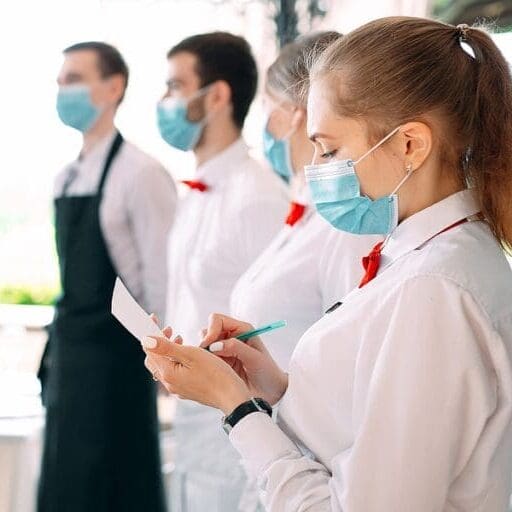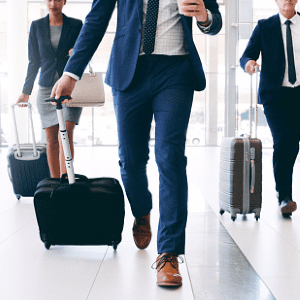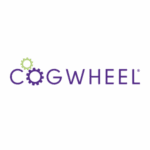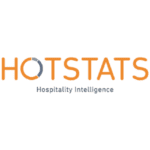 The hotel sector has been forced to adapt to unprecedented market disruption over the last 18 months as a result of the global pandemic. And while anyone who says they can accurately predict when operating conditions will return to normal should be listened to with a high degree of scepticism, it is understood that vaccination rates will play a central role in the resumption of travel and driving hotel occupancy.
The hotel sector has been forced to adapt to unprecedented market disruption over the last 18 months as a result of the global pandemic. And while anyone who says they can accurately predict when operating conditions will return to normal should be listened to with a high degree of scepticism, it is understood that vaccination rates will play a central role in the resumption of travel and driving hotel occupancy.
Research shows that high vaccination rates help boost travel confidence, with a recent study showing “54% of Europeans are intending to book a trip once they have been vaccinated against COVID-19.” A separate study also showed 49% of people agreed with the statement that “getting a vaccine is very important to allow them to resume travel.”
Importantly, booking data also shows a direct correlation between the easing of government mandated travel restrictions as vaccination rates hit a critical mass and increased demand for flight and hotel bookings. The ‘Skift Recovery Index: July 2021 Highlights’ stated that: “According to data from Skyscanner, bookings for outbound flights from the UK jumped up after July 8, which was the day it was confirmed that ‘Freedom Day’ (a day in which lockdown measures and travel restrictions were eased following high rates of vaccination) would go ahead. Spain, Greece, Italy, and Portugal were the most searched international destinations.”
However, the rollout of mass national vaccination programs is not occurring equally across the globe, with markets like North America outpacing much of Southeast Asia, meaning the timeline for recovery won’t occur at the same rate in all regions. So, how will vaccination rates impact hotel demand going forward and what trends are emerging from those markets open for travel today? What can hoteliers learn from other regions and what do guests want today?
The path to recovery will be uneven
Tourism Economics’ latest forecast indicates domestic travel will reach 82% of 2019 levels in 2021 and surpass 2019 levels in 2022 by 110%. However, international travel is expected to recover at a slower rate and will only return to 2019 levels by 2024. This means the recovery trajectory for hotels will also vary for individual properties, even those within the same market. For example, two hotels in the same city—one previously filled with domestic business and another with mainly inbound international demand—will see their occupancy and market mix rebound differently.
According to Daniel Chong, Director, Revenue Account Management & Global Strategy at the Preferred Hotel Group, the speed of demand recovery will be dependent on a number of factors like geography, COVID-19 outbreaks and the rollout of vaccines.
“The positive news is that if we look to markets like China, the UK and North America—which have either managed to suppress large outbreaks of COVID-19 or have successfully undertaken mass vaccination drives, signs of strong recovery are present. Occupancy and RevPAR levels are rising, largely driven by domestic travel and leisure segments,” said Chong.
However, while some international markets are improving, the recovery path in Southeast Asia is slower due to reliance on international markets and lower levels of domestic demand.
“Countries like Indonesia and Philippines, which focus on attracting and catering for international guests, are impacted more severely by border closures and international travel restrictions. They don’t have a strong domestic demand to pivot towards when international travel is restricted, which means that the recovery will take longer. Having said this, the rollout of vaccination programs across the region makes me confident that the recovery will grow in momentum across Southeast Asia over the send half of 2021 and into 2022,” commented Chong.
Uncertainty will continue to impact booking windows
Markets with high rates of vaccination and open travel have seen high demand for accommodation options outside of city centres. Beachside resorts, holiday parks, hotels and motels in regional country towns and national wildlife (or heritage) areas are seeing high levels of occupancy due to a desire for travellers to reconnect with nature and not around large groups of people.
Local, or drive, destinations are also experiencing recovery ahead of other sectors, with air-travel still not the first option for many guests. As a result, hoteliers should be prepared for shorter lead times and booking windows. This is due to an abundant supply of rooms and price stability but is primarily driven by uncertainty. Guests are reluctant to plan and book a holiday, or business travel, far in advance given the possibility of new travel restrictions being enacted by governments at a local, national or international level.
In this new environment, hoteliers will need to adjust their inventory management. Hotels should focus on family friendly options like interconnecting rooms or flexible room capacities and provide transparency in any extra person or rollaway charges. The family or drive market may often be seen as a lower yielding or price-sensitive segment; however, don’t underestimate the pent-up demand for luxury and indulgence. Hoteliers should highlight features, promote add-on experiences and upgrade options that will enable the guest to make that first ‘return-to-normal’ hotel stay memorable.
Learn from markets piloting new travel initiatives
Ahead of a wide-scale, generalised relaxation of international border restrictions, it is expected that as countries achieve high rates of vaccination and reopen for travel, they will do so selectively, through partnerships like ‘green lanes’ or the UK’s traffic-light system of rating the safety of destinations. These initiatives can open new source markets for hotels to target for business and should be carefully monitored.
Outside of these selective travel corridors, initiatives like Thailand’s Phuket Sandbox also offer learnings, in particular for resort markets in the future. Given its national economy is heavily reliant on international tourism, Thailand is launching a pilot program to restart international travel to the island of Phuket. The Phuket Sandbox initiative focuses vaccination efforts on locals and workers in Phuket ahead of opening the destination for quarantine-free international travellers who can demonstrate they are fully vaccinated.
Although data is limited around the Sandbox initiative so far, early indications are that smaller scale properties (with less than 75 rooms) and luxury accommodation providers are outperforming the wider market. As this initiative may likely be replicated in other resort destinations, like Bali, hoteliers should analyse early data from Phuket (like what destinations people are travelling from, what class of rooms are attracting demand, etc.) to help with their own planning.
What do guests really want?
Even after social isolation measures and travel restrictions ease as a result of higher rates of vaccination, travellers may still be wary of putting themselves at unnecessary risk. As a result, hotels need to provide services that make them feel secure and safe from a public health standpoint. Hotels should review their dining offerings to provide flexible options which allow for guests to enjoy meals in their rooms. This could include facilitating in-room meal deliveries from outside providers (like Uber Eats, Grab or Doordash) and provide a boxed breakfast doorstep delivery instead of the traditional buffet.
Guests will likely be more conscious of limiting interactions in communal areas and want to move through these areas quickly, with minimal contact. Hotels should provide either virtual, kiosk or contactless check-in procedures and be properly staffed to handle front desk needs quickly and avoid lines and overcrowding.
Cleaning and hygiene protocols are now at the top of the list as a desirable commodity for guests. Where once making cleaning shifts visible throughout the day was avoided by hoteliers, it should now be encouraged to increase the frequency of cleaning and make this visible to guests seeking reassurance of their own safety. Disposable mask stations and hand sanitisers should continue to be made conspicuously available at all guest contact points (such as check-in desks), within rooms and in toiletry kits.
Plan around interruptions
Although some travel markets are beginning to reopen, it will be some time before full international travel returns at a global scale. In the meantime, vaccine passports, mask wearing and visiting approved destinations may become the norm for travelers. Just as guests will have to adjust, so will hotels have to quickly pivot as travel restrictions evolve and their source markets change.
For example, a widely reported ‘travel bubble’ between Australia and New Zealand has been halted in recent months due to Delta variant outbreaks in both countries. The reintroduction of travel restrictions due to Delta outbreaks should be factored into all hotels planning, as the ‘Skift Recovery Index: July 2021 Highlights’ said that in Australia “hotel occupancy has been on a rapid decline since new and extended restrictions have been put in place.”
In a disrupted market, where travel restrictions can be implemented at short notice, impacting demand and occupancy, hotels need to be agile and able to collect, analyse and derive strategic pricing and inventory decisions from an array of data points. This is a time-consuming process, made only more difficult by consolidation and a reduction of headcount in many hotels. This is where an automated revenue management system with advanced algorithms and processing speeds make a difference in recognising scenarios and supporting revenue managers in making fast, complex decisions based less on gut instinct and more on science.
A more positive future ahead
While a full market recovery will take time, there are positive signs that as mass vaccination programs progress around the world, travel restrictions will be eased and guests will return at higher levels. Through understanding market trends and targeting likely guests with the right promotion and the right message at the right price, hotels will be best placed to begin regrowing business.
About the author
 Written by: Klaus Kohlmayr, Chief Evangelist & Development Officer, IDeaS
Written by: Klaus Kohlmayr, Chief Evangelist & Development Officer, IDeaS
For more information on how your hotel can navigate business disruption and maximise revenue in an uncertain market, please visit: www.ideas.com





















